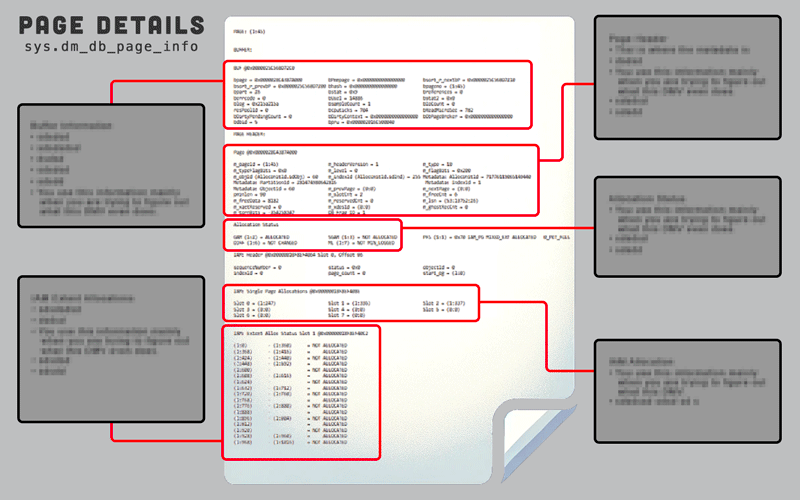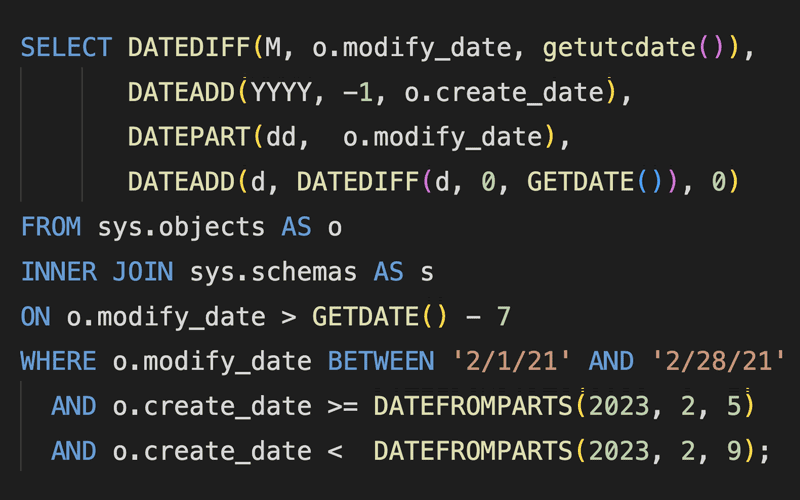I share my slide deck from a recent presentation at the Charlotte SQL Server User Group.
In part 2 of this series, we add another way to further isolate multiple threads of a bulk import process.
In the first of a 2-part series, see how you can easily reduce contention between multiple bulk import threads.
This tip shows a neat trick with CROSS APPLY that lets your metadata queries ignore columns that don't exist yet.
Read a quick overview Scalar UDF Inlining, a long-awaited feature in SQL Server 2019 that will improve the performance of some workloads.
If you use scalar user-defined functions, and can't take advantage of new handling in SQL Server 2019, see some other ways to reduce the impact on performance.
Aaron Bertrand announces the recipient of his third annual Community Influencer of the Year award.
Simplify your date range calculations when trying to find events that overlap (or don't).
This new approximate function may not cut down on execution time, but it relieves a whole lot of memory pressure.
Microsoft has pulled several patches for older versions of SQL Server. If you need TLS 1.2 support on an unsupported version, your recourse is to contact Microsoft support.
Some of your gnarly scalar UDFs will stop being in the naughty book when they can be inlined.
Some additional details about this sp_MSforeachdb (and sp_foreachdb) replacement.
New first class citizen in SQL Server 2019 that will help you identify and audit sensitive information.
This new function eliminates some of the tedious legwork you might find yourself doing with DBCC PAGE.
I talk about the top 10 wait types observed among SentryOne customers, and where to turn when you experience one of them on your own system.
This replacement for sp_foreachdb makes even more improvements over the original system procedure, sp_MSforeachdb.
I show that, in some cases, INSTEAD OF triggers can be better for performance than AFTER triggers.
In this post, see what it took to migrate nearly 5,000 posts from the SQLPerformance.com Q&A site on AnswerHub to WordPress.
I talk about the pros and cons of letting SQL Server wait to get a more accurate cardinality estimate from a table variable.
I discuss a queue table for DDL notifications instead of handling them within a DDL trigger.
Updated for a more modern version, I explain how to install and use SQLLocalDB.
This tip was refreshed with status updates for some of the critical bugs discovered in MERGE over the years.
SQL Server will gladly tell you about missing indexes, but it may not give you the keys in the right order.
For this T-SQL Tuesday, I talk about my methods for metadata discovery in new versions of SQL Server.
GDPR is a big deal for a lot of us; in this tip I explain how you might want to deal with "forget me" requests.
I show how to denormalize data using FOR XML PATH and STRING_AGG, and explain which one is faster.
Privacy laws are going to make us all much more careful about how we handle data archival and purge processes.
I show how to enable, disable, drop, and re-create all triggers in a database using dynamic SQL.
I give some scattered thoughts about how I have contributed to the SQL Server community throughout my career.
Estimated data size as a result of implicit conversions can make a huge difference in the execution plan.
In this tip, I talk about a slightly more flexible way to simulate TRY_CONVERT() on unsupported versions of SQL Server.
If you are still stuck on an unsupported version of SQL Server, there may still be a way for you to have TRY_CONVERT() functionality.
Check this list for possible problems if you have trouble connecting using the Dedicated Administrator Connection.
This was mostly tongue-in-cheek, but I show that there is no performance difference between tabs and spaces. (There is, however, a better reason to prefer tabs: accessibility.)
I recap a grand total of FIFTY entries in this month's T-SQL Tuesday. A lot of interesting submissions!
For my T-SQL Tuesday entry, I show off my hockey and football card collection, license plates from all over the world, and a very special collection of "Everything Happens to Aaron" books.
I address several questions raised during two parameter sniffing webinars I presented with Kimberly L. Tripp and Andy Mallon.
For this month's T-SQL Tuesday, I would love to hear about something you are passionate about, outside of the SQL Server or tech community.
You can now enable this setting at the database level, optimizing performance there while not violating support for other vendor databases (like SharePoint).
See a few creative ways to make use of STRING_AGG() and STRING_SPLIT().
Some background and disclaimers about moving my content from sqlblog.com to sqlblog.org.
Some very important qualitative questions your company needs to ask itself to be sure you are complying with this new regulation.
Aaron Bertrand announces the recipient of his second annual Community Influencer of the Year award.
For this T-SQL Tuesday, I talk about a few of the difference makers in my career.
Tip : Overview of Database Engine Changes in SQL Server 2017
In this tip, I dig into some of the inner workings of resumable index rebuilds.





































